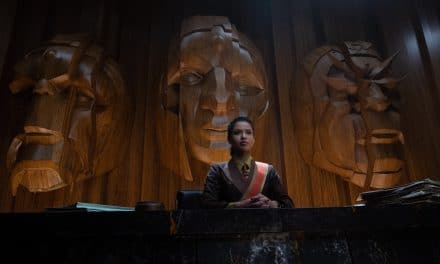You don’t have to tell me twice to watch something that Michael Mann is involved with. Tokyo Vice is a show that sounds incredible on paper, but does it really work out as well as the idea? Let’s start with the background of the series, It’s based on the memoir of Jake Adelstein from 2009 Tokyo Vice: An American Reporter on the Police Beat In Japan. Adelstein’s novel was adapted by J.T. Rogers and has Michael Mann directing the first episode and Executive Producing. It stars Ansel Elgort, Ken Watanabe, Rachel Keller, Hideaki Ito, and Show Kasamatsu.
Tokyo Vice follows Adelstein as the first American beat reporter for Yomiuri Shimbun, one of the biggest newspapers in Japan. He starts off under the wing of a veteran detective in the vice squad in Tokyo. This leads him down the path toward the dangerous yazuka crime syndicates. Through the first three episodes, Adelstein starts off bright and cheery looking to make a name for himself in a world where your name means little in journalism.
It originally started off as a movie in 2013 with Daniel Radcliffe attached to star. Later on, it was repurposed as a series, and we got the finished product with 8 episodes this year. The story works well through the extended development cycle because it’s fairly timeless. It’s a bit nostalgic seeing the technology that Jake uses, and the methods he goes through to get some of his early stories. The Japanese journalistic style is also on full display with plenty of time devoted to showing just how it works and the differences between various styles.
Performances That Are Overshadowed

Throughout the first three episodes of Tokyo Vice, one thing is apparent: Tokyo is amazing. The city is a living breathing character in this show, so much so, that it overshadows the characters. Elgort does his best with the material, but his performance doesn’t stand much out from the crowd. He gets the job done, but doesn’t really excel at anything. Ken Watanabe isn’t in much of the first three episodes, but his scenes are the standouts of the first couple of episodes. There’s something mysterious, but fatherlike about him.
Michael Mann Everywhere In Tokyo Vice
Shô Kasamatsu plays a much more interesting character in Sato. He’s a gangster that’s multi-faceted and somehow gives Jake the time of day. There’s a specific scene with Jake, Sato, and Samantha (Rachel Keller) that feels like something darker sits under the surface. That’s really the feeling I got most when watching Tokyo Vice. It has beautiful cinematography, and great writing, but there’s something bubbling under the surface. The first three episodes give a small hint of what’s to come, but it’s just a taste. There’s lots of tension, comic relief, and it’s very well-paced. For those looking for something similar to Miami Vice, you’ll be sorely disappointed. This is more Manhunter or Heat in its execution and pace.
Michael Mann only directs the first episode, but his fingerprints and influence from various projects are all over Tokyo Vice. The episodes are an hour-long, but breeze by through great pacing. Even when it bogs down in Journalistic jargon and the story of a white guy finding himself in Japan, the first three episodes still work really well.
Tokyo and its criminal underworld just overshadow most of the proceedings and performances so far. The show is a love letter to the culture and intrigue of the setting and an “almost” modern-day hard-boiled noir. There’s more to come from this series, but these first three episodes lay the foundation for something that could be truly special.
For more on TV news, make sure to check back to That Hashtag Show.

![Tokyo Vice Ep. 1/2/3 – Slow And Steady Noir [Review]](https://thathashtagshow.com/wp-content/uploads/2022/04/277373498_279512514377907_1984192915152754557_n-1200x640.png)



![Kaiju No. 8 Ep. 2 “The Kaiju Who Defeats Kaiju”: Silly Kaiju Man [Review]](https://thathashtagshow.com/wp-content/uploads/2024/04/336cdd03-e1d0-4203-8cbb-03f1e0e79b3a-440x264.jpg)